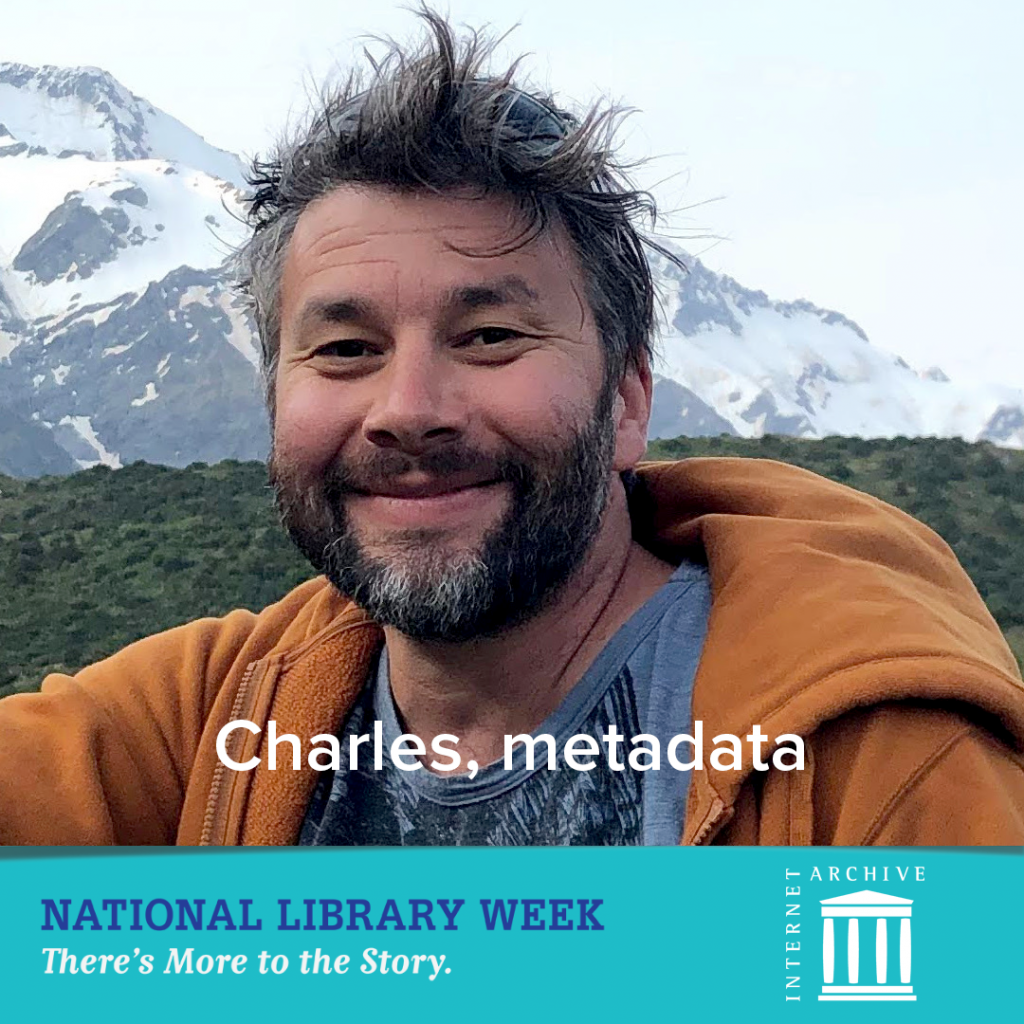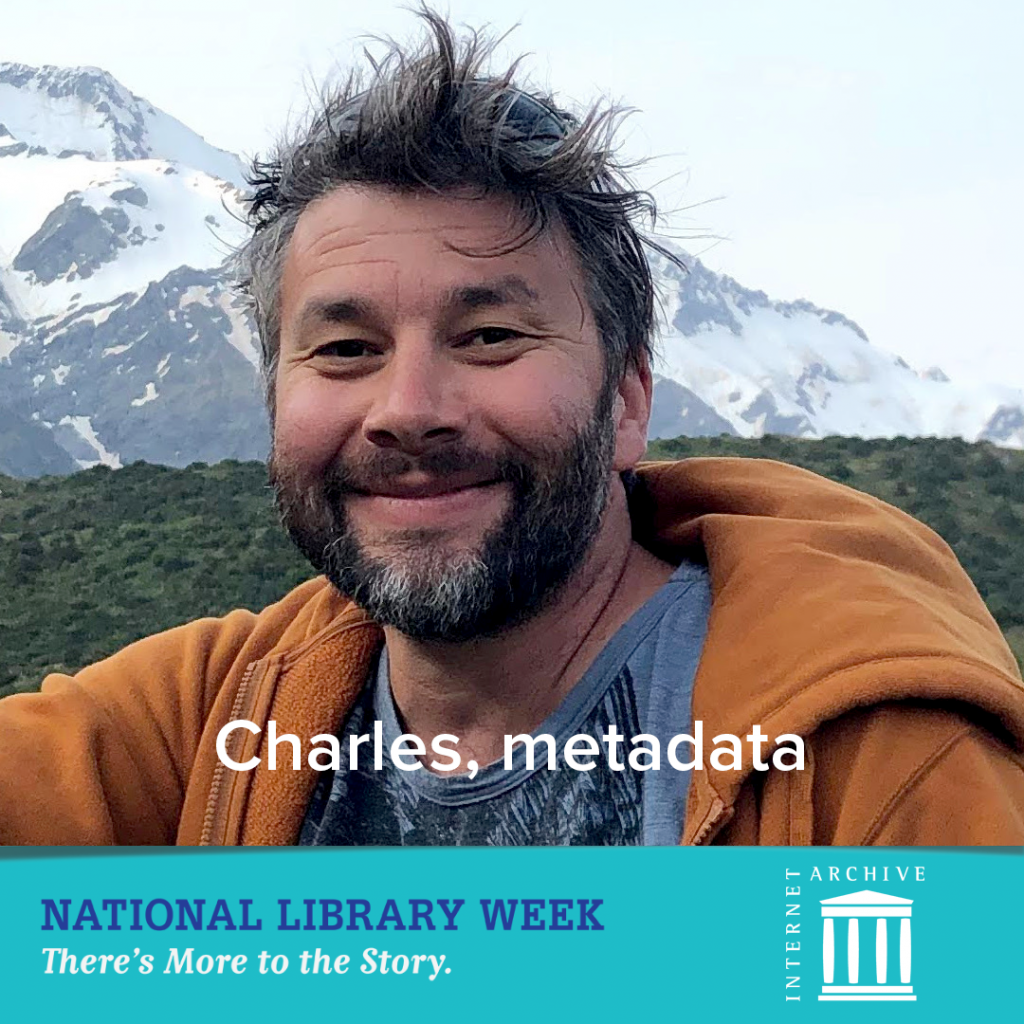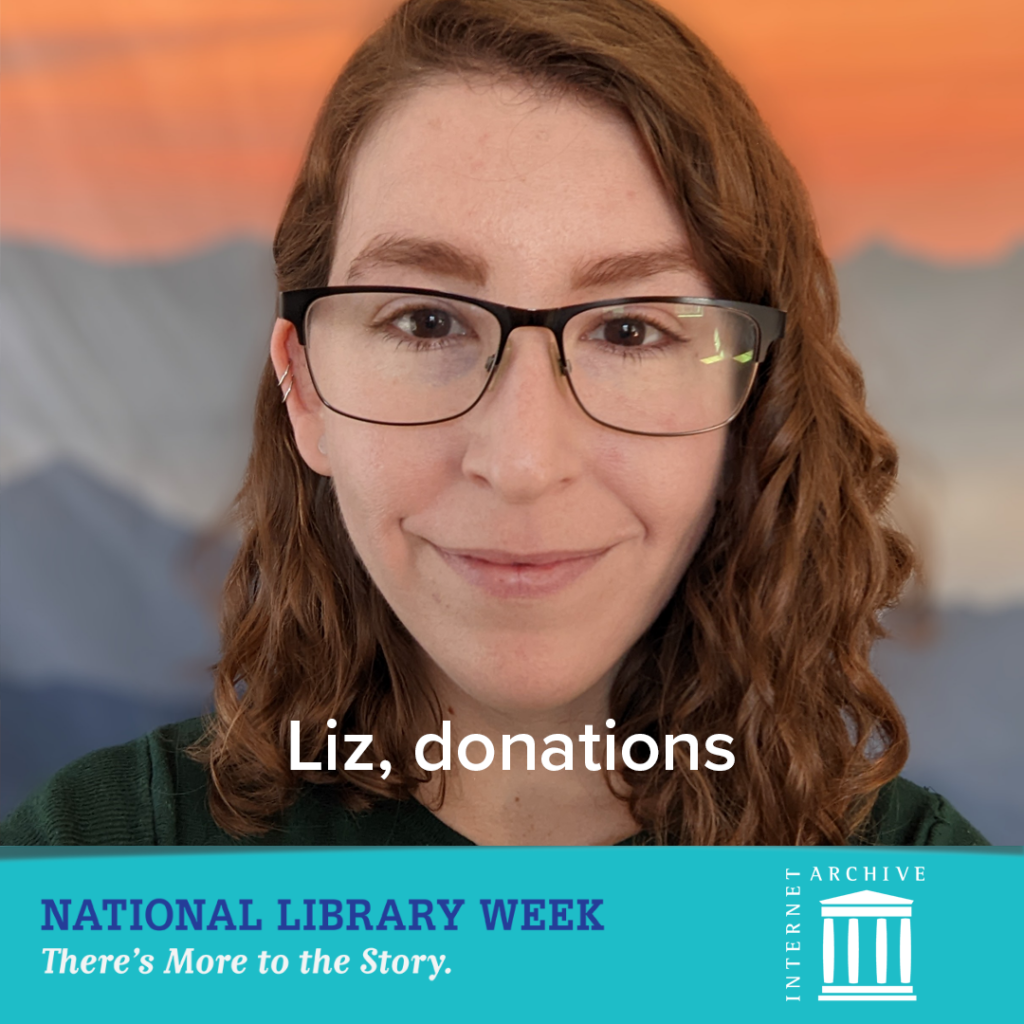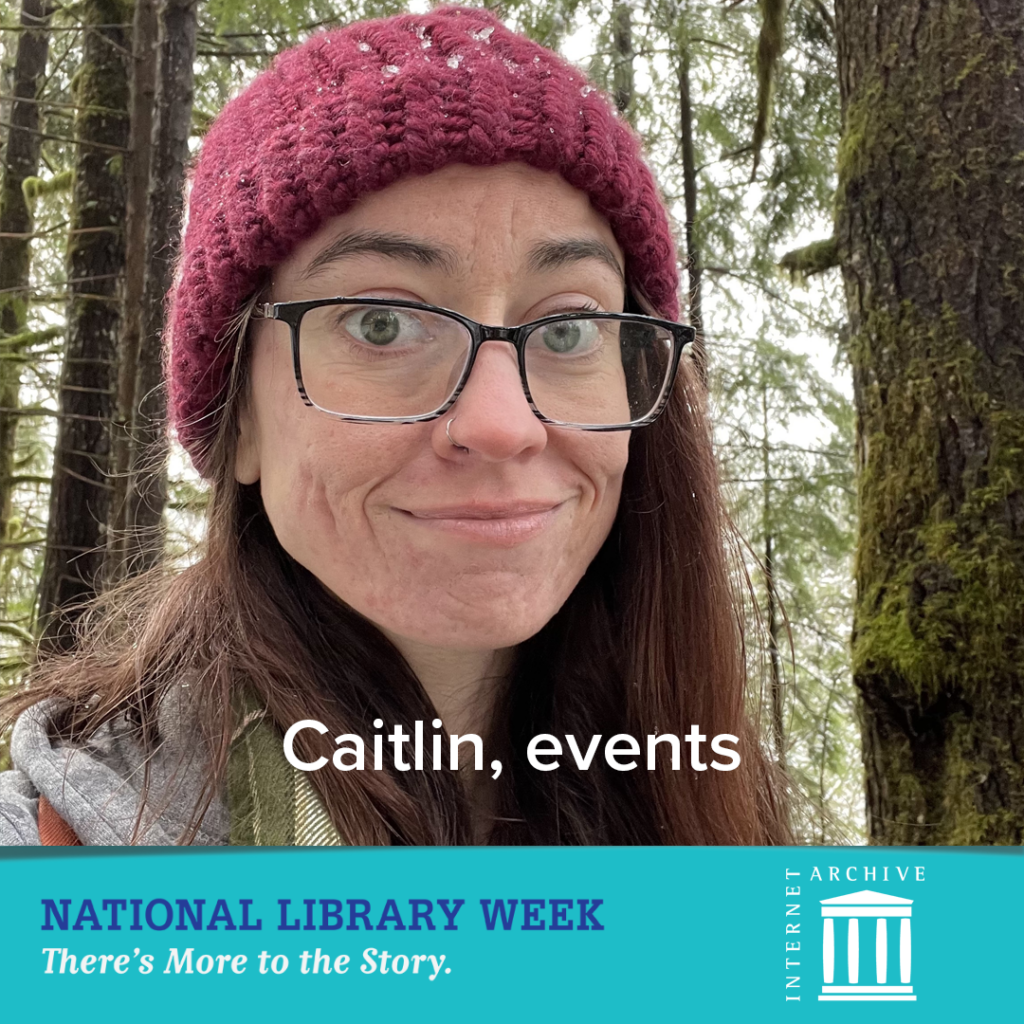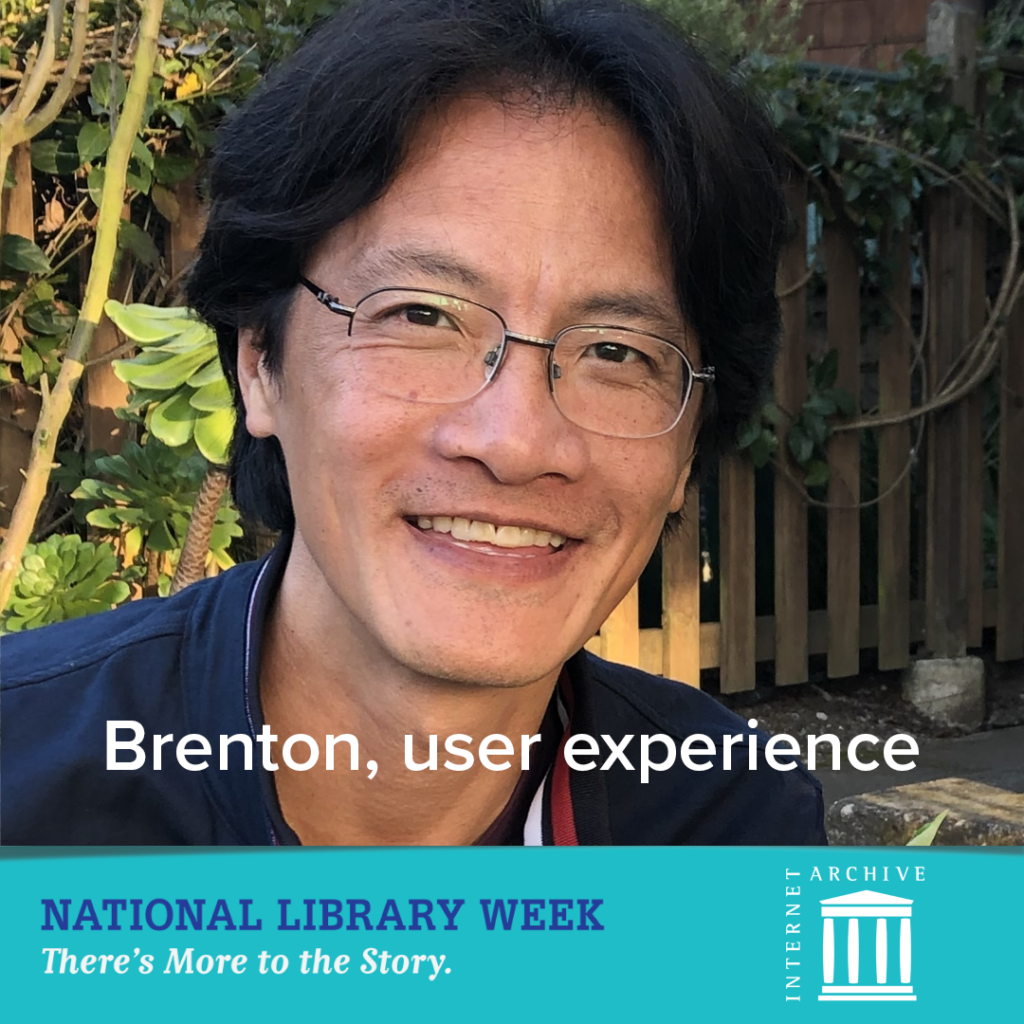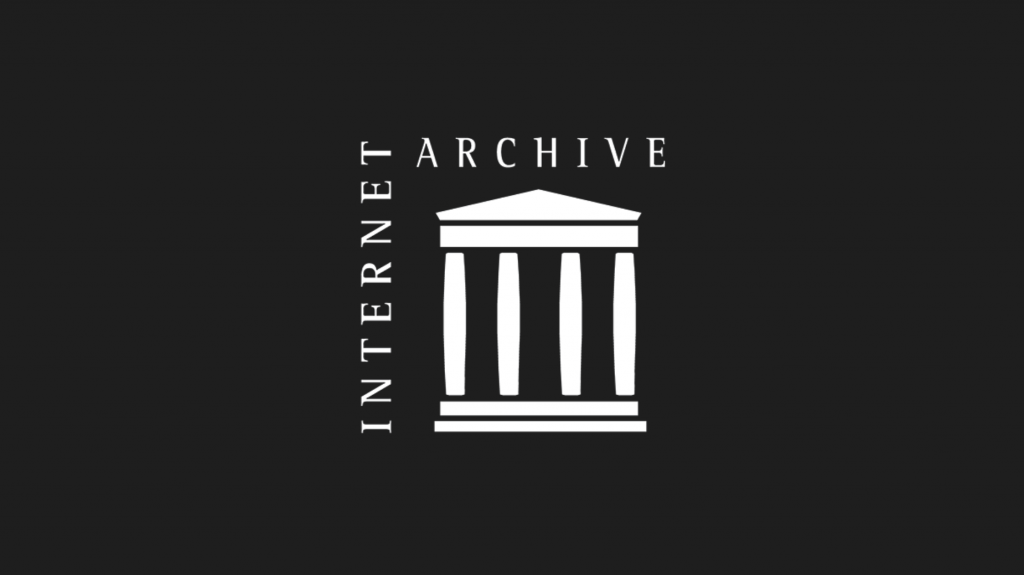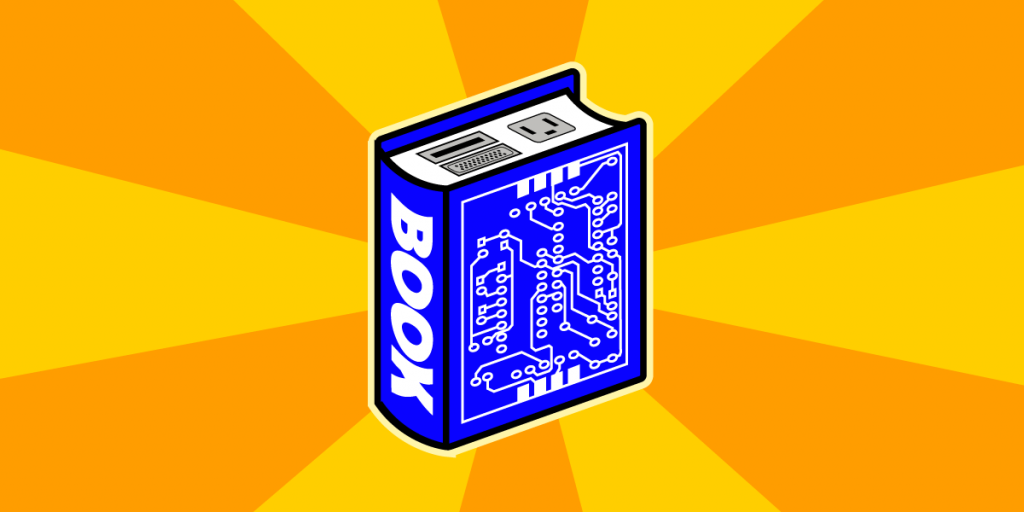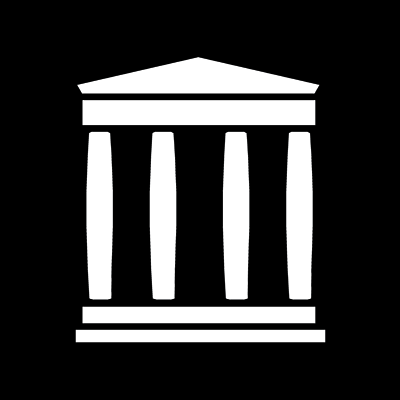To celebrate National Library Week 2023, we are introducing readers to four staff members who work behind the scenes at the Internet Archive, helping connect patrons with our collections, services and programs.
Working from his home office in Wellington, New Zealand, Charles Horn is a metadata wrangler for the Internet Archive. He feels lucky to live near the Pacific Ocean, where he can kayak through the local marine reserve in his spare time — while also working with others internationally to improve access to information.
Horn is responsible for managing, matching and sharing bibliographic data at scale. He works with software tools and formatting to make sense of often obscure bibliographic data when opportunities present themselves through donations and patron requests. Call him a digital librarian or data scientist, his goal is to improve discoverability of materials for users online.
In New Zealand, Horn earned a double degree in classical studies and information systems at the University of Canterbury. His interest in ancient Greek language and literature meant he spent a lot of time in libraries. He worked as a software developer at various companies before joining the Internet Archive five years ago.
“It’s nice to work for a nonprofit that is having an impact around the world,” said Horn, who works closely with the Open Libraries project and is currently working on standard formatting for public domain audiobook recordings, like those available through Librivox.
Preserving older materials with modern information practices is challenging, he said, as well as fun and entertaining.
“A lot of digital content is potentially quite ephemeral—and that’s where a lot of culture is happening,” he said. “Being a digital archivist or librarian, you need to think about how you’d want it preserved or cataloged for the future.”
Horn said he disagrees with people outside of libraries who think the institution is no longer relevant because everything’s online. It’s the transition to digital that makes libraries all the more relevant today. “There are researchers who need to work with increasing quantities of information,” he said. “Libraries and librarianship are incredibly relevant today, especially in the digital realm.”
Tell us something about your role at the Internet Archive that most people wouldn’t know about.
I work on the metadata of about 5 million books for which we have full scans, and frequently process tens of millions more as we work with partners. I enjoy the fact that for any arbitrary book there is a good chance I have made a small addition, improvement, or added a link on a bibliographic record hosted on archive.org or openlibrary.org, making that information slightly more connected, more relevant, and more accessible.
What’s your secret talent no one knows about?
I have been teaching myself Quantum computing and Information science, using online resources and physical books. For a library related task, I designed and implemented a quantum circuit to validate ISBNs using a single qubit.
What has been your greatest achievement (so far) at the Internet Archive?
Working with library partners to make practical controlled digital lending a reality and enabling access to hard to locate works for an audience that would be otherwise unable to access them.
Currently reading: The Bridge, by Iain Banks, and From Counterculture to Cyberculture, by Fred Turner. Looking forward to Breakable Things, by Cassandra Khaw when it arrives from Better World Books.
